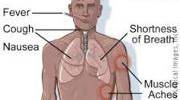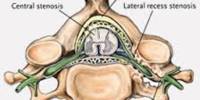There is evidence to suggest that fasting diets may reduce risk markers of type 2 diabetes. Fasting diets typically involve restricting food intake for a certain period of time, such as 16 hours a day or for a few days a week.
A fasting diet that emphasizes eating early in the day may be the key to lowering the risk of type 2 diabetes. Researchers from the University of Adelaide and the South Australian Health and Medical Research Institute (SAHMRI) compared two diets: a time-restricted, intermittent fasting diet and a reduced calorie diet to see which was better for people at risk of developing type 2 diabetes.
“Following a time-restricted, intermittent fasting diet could help lower the chances of developing type 2 diabetes,” said senior author Professor Leonie Heilbronn, Adelaide Medical School, from the University of Adelaide.
This is the world’s largest study to date, and the first powered to assess how the body processes and uses glucose after eating a meal, which is a better indicator of diabetes risk than a fasting test.
Xiao Tong Teong
“After 6 months, people who fasted for three days a week, eating only between 8 a.m. and 12 p.m. on those days, showed a greater tolerance to glucose than those on a daily, low-calorie diet.” Participants on the intermittent fasting diet were more insulin sensitive and had lower blood lipid levels than those on the low-calorie diet.”
Type 2 diabetes develops when the body’s cells fail to respond effectively to insulin and it loses its ability to produce the hormone that regulates glucose levels in the blood. It is estimated that dietary and lifestyle changes could postpone or prevent nearly 60% of type 2 diabetes cases. Almost 1.3 million Australians are currently living with the condition, for which there is no cure.

There were more than 200 participants recruited from South Australia in the 18-month study, which was published in scientific journal, Nature Medicine. Participants on both the time restricted, intermittent fasting diet and the low-calorie diet experienced similar amounts of weight loss.
“This is the world’s largest study to date, and the first powered to assess how the body processes and uses glucose after eating a meal, which is a better indicator of diabetes risk than a fasting test,” said first author Xiao Tong Teong, a PhD student at the University of Adelaide.
“The findings of this study add to the growing body of evidence indicating that meal timing and fasting advice extends the health benefits of a low-calorie diet, independent of weight loss, and this may have clinical implications.”
However, it is important to note that fasting diets are not suitable for everyone, and individuals with certain medical conditions, such as diabetes or eating disorders, should consult with a healthcare professional before starting a fasting diet. Additionally, more research is needed to fully understand the potential benefits and risks of fasting diets for preventing or managing type 2 diabetes. Further research is needed to investigate if the same benefits are experienced with a slightly longer eating window, which could make the diet more sustainable in the long term.
















